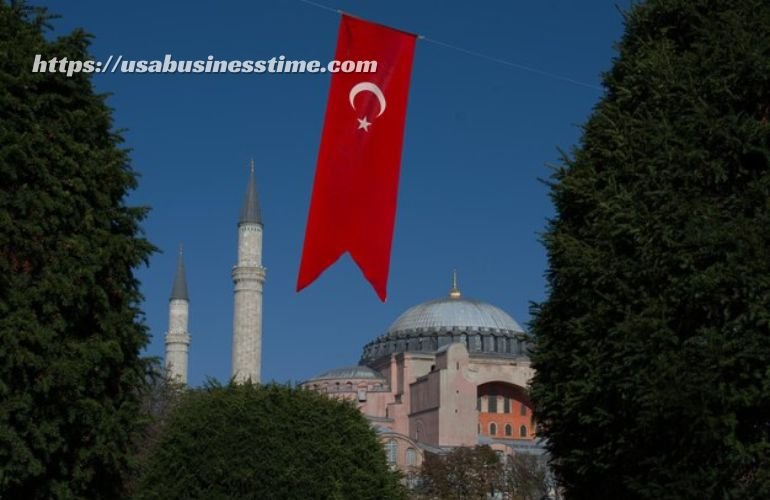“Utanmaz Türklere” has long stirred emotions, sparked debates, and challenged social norms within Turkish society. Often translated as “shameless Turks,” the term carries strong connotations that touch on identity, cultural pride, and societal boundaries. Its usage has evolved, gaining momentum through various media, where it both critiques and embraces a certain unapologetic spirit. As we explore its historical roots, impact on popular culture, and modern implications, we encounter layers of meaning that reveal the complex and sometimes divisive nature of the phrase.
Understanding “Utanmaz Türklere” means confronting questions of cultural identity, social acceptance, and the role of public opinion. This exploration offers insight into not just the term itself, but the broader dynamics shaping Turkish society today.
Table of Contents
Historical Roots and Evolution of “Utanmaz Türklere”
The term “Utanmaz Türklere,” loosely translated as “shameless Turks,” has origins that extend deep into Turkey’s history, tied to cultural shifts, identity formation, and societal tensions. Its roots can be traced to early Ottoman times, where strong ideas of decorum and modesty were highly valued. In those days, behaviors that defied these norms were often harshly criticized, and those seen as “shameless” were quickly labeled as outsiders to traditional Turkish values.
As the Ottoman Empire transitioned into modern Turkey in the early 20th century, the nation faced sweeping reforms under Mustafa Kemal Atatürk. With a push for secularism and modernization, many traditional values were reconsidered. During this period, the label “Utanmaz” began to shift in meaning, reflecting not just a moral judgment but also a critique of those resisting or embracing change. For some, it became a term of reproach against individuals who boldly defied social norms, particularly in the realms of dress, behavior, and political thought. For others, “Utanmaz” represented an unapologetic confidence, a willingness to reject conventionality in pursuit of self-expression.
By the 1980s, as Turkey experienced rapid economic growth and urbanization, media channels expanded, and with them, the visibility of diverse lifestyles grew. This era saw an increasing cultural divide, where traditional values often clashed with liberal perspectives. Terms like “Utanmaz” resurfaced, this time within a larger context of public debate on what it meant to be “modern” and “authentic” in Turkish society. Those labeled as “Utanmaz Türklere” were frequently seen as challenging established norms, either through outspoken political positions, participation in countercultural movements, or the pursuit of more global, individualistic lifestyles.
In today’s Turkey, the term “Utanmaz Türklere” carries both a historical weight and modern relevance. It reflects an ongoing negotiation between traditional values and contemporary identity. While some use it as a criticism of behaviors that reject societal expectations, others adopt it with a sense of pride, as a declaration of independence from restrictive norms. This evolution of meaning reveals how Turkish society continues to grapple with questions of conformity, pride, and the freedom to express individual identity.
Through the historical lens, “Utanmaz Türklere” serves not merely as a label but as a marker of societal evolution—a term that mirrors the journey of Turkish culture through time, balancing the weight of its past with the demands of its present.
Cultural Perceptions and Social Norms
In Turkey, cultural perceptions and societal norms shape the way “Utanmaz Türklere” is understood and applied. The phrase sits at the intersection of tradition and modernity, capturing a wide range of societal expectations about behavior, respectability, and identity. Turkish society places a high value on concepts of honor, family reputation, and community respect. The label “Utanmaz,” meaning shameless, challenges these principles, often marking individuals who resist conformity or act against established norms.

Within traditional circles, being labeled “Utanmaz” suggests a breach of etiquette or moral standards, with actions that could bring shame not only to the individual but also to their family or community. These perceptions are especially strong in areas where collective identity holds sway over individual expression, and where maintaining harmony within the community is seen as paramount. In this context, any display of behaviors deemed inappropriate or rebellious may be quickly criticized as “Utanmaz,” reflecting a deep-seated emphasis on social cohesion.
On the other hand, urban centers and younger generations increasingly interpret “Utanmaz” as a badge of independence. For them, it conveys a sense of freedom from restrictive norms. This divergence reflects the evolving nature of Turkish society, where exposure to global ideas and greater emphasis on individual rights have led to shifts in how people express themselves. Those who wear the label “Utanmaz Türklere” in this way often see it as a declaration of self-empowerment, challenging outdated standards and advocating for progressive values.
Media and popular culture play a significant role in shaping these varied perceptions. Television shows, social media influencers, and music often present characters or personas embodying the “Utanmaz” spirit—individuals who defy traditional expectations and pursue lives on their terms. These representations resonate with audiences who seek change and question traditional standards of “appropriate” behavior, normalizing alternative ways of living that might once have been met with disapproval.
The use of “Utanmaz Türklere” illustrates the dynamic tension between individualism and collectivism in Turkey. As some embrace the term as a form of cultural pride, others continue to see it as an undesirable label. This variation reveals how deeply embedded values are constantly negotiated within the fabric of Turkish society, with “Utanmaz Türklere” capturing both the resistance to, and the reinvention of, social norms.
Media’s Role in Shaping and Amplifying “Utanmaz Türklere”
Media plays a powerful role in both defining and amplifying the term “Utanmaz Türklere” across Turkish society. Traditional media, including television and newspapers, have long used the concept as a shorthand for controversial or unconventional characters, fueling public debate around behaviors that defy societal expectations. Through stories, talk shows, and commentary, traditional media has helped solidify certain images and stereotypes associated with the term, often casting individuals labeled as “Utanmaz” in sensational or provocative ways to attract attention and, at times, reinforce conservative values.
Social media, however, has brought new layers to the narrative. Platforms like Instagram, Twitter, and TikTok allow individuals to reclaim or redefine “Utanmaz Türklere” on their terms. Many influencers and everyday users challenge traditional uses of the term, framing it instead as a positive expression of individuality, self-assurance, and resistance against outdated social norms. Hashtags, memes, and viral videos contribute to this reimagining, presenting “Utanmaz Türklere” not as an insult but as a declaration of independence. These platforms also foster communities where people feel less constrained by conservative expectations and find solidarity with others who share similar views.
The power of media, traditional and social alike, lies in its ability to shift perceptions across different demographics. For older, more traditional audiences, television often reinforces the idea that those labeled “Utanmaz” are troublemakers, deviating from cultural norms. Younger audiences, conversely, find on social media a platform for more progressive narratives. This division has intensified discussions between generations, with each side presenting and consuming media that aligns with its values and beliefs about identity and respectability.
Additionally, media coverage of public figures and celebrities often influences how “Utanmaz Türklere” is perceived. High-profile figures who challenge social expectations—be it through activism, fashion, or outspoken opinions—are frequently discussed in relation to this term. Their portrayal in the media, whether celebrated or criticized, affects public opinion and often shapes how individuals understand the boundaries of “acceptable” behavior.
Media’s role in shaping “Utanmaz Türklere” is a reflection of Turkey’s broader societal transformation. The narratives presented across platforms allow the term to evolve, giving it different meanings based on context, audience, and intent. Through its portrayal, “Utanmaz Türklere” is not just a static label but a term open to reinterpretation, highlighting the ongoing dialogue between traditional values and modern expressions of identity in Turkish society.
Psychological and Social Impacts on Individuals and Society
The label “Utanmaz Türklere” carries significant psychological and social weight, affecting both those it targets and the communities in which it resonates. On a personal level, being branded as “Utanmaz,” or shameless, can create feelings of isolation, as individuals find themselves separated from collective values and sometimes ostracized by their peers or family. This separation can lead to internal conflict, as individuals struggle between self-expression and the desire for social acceptance, particularly within more conservative circles.
The impact is especially strong among young people, who are often more exposed to diverse ideas and global perspectives. For many, the term “Utanmaz” is a double-edged sword: on one hand, it allows them to reject outdated norms and pursue a more authentic self, but on the other, it can come with emotional and social costs. The fear of being labeled as shameless can lead some to limit their actions, suppressing their thoughts or creativity to avoid judgment. For others, embracing the label can become a source of resilience, building a personal identity that challenges conventional limitations.
On a societal level, “Utanmaz Türklere” reflects and reinforces a collective consciousness about acceptable behavior and values. Those who accept or even adopt the term as a form of self-identity often spark discussions around tolerance and diversity, challenging communities to confront ingrained biases. In some areas, this confrontation fuels a pushback against change, as more conservative groups perceive “Utanmaz” behavior as a direct challenge to deeply held beliefs about family, morality, and cultural heritage.
The societal impact also extends to social relationships. In many cases, individuals labeled as “Utanmaz” experience shifts in how they are treated by friends, family, and colleagues. This label can act as a barrier in forming close relationships, particularly with those who prioritize tradition. However, in more progressive or urban settings, the term is sometimes seen less as a negative judgment and more as an expression of individuality, reducing its social stigma and allowing for more diverse social circles.
These dynamics reveal that the psychological and social effects of “Utanmaz Türklere” are far-reaching, touching everything from personal identity to social cohesion. As Turkish society continues to evolve, this term will likely keep prompting discussions on the balance between tradition and individuality, shaping the collective psyche while influencing the experiences of those navigating the complex layers of modern identity.
Political and Legal Dimensions
The phrase “Utanmaz Türklere” does not merely reflect cultural judgments; it also intersects with political discourse and legal considerations in Turkey. Political leaders and public figures have used the term to sway public opinion or criticize their opponents, often casting them as outliers who reject “true” Turkish values. Such political usage serves to deepen divides, turning the phrase into a tool for reinforcing certain ideological stances and delegitimizing opposing views. This association with politics gives “Utanmaz Türklere” a weight beyond cultural critique, embedding it in the language of authority and national identity.

In a country where discussions about identity and morality are highly sensitive, being publicly labeled “Utanmaz” by politicians can affect an individual’s social standing and professional opportunities. In some cases, accusations of shameless behavior are not merely reputational but carry legal implications, as Turkish laws governing public decency, freedom of speech, and moral conduct can sometimes come into play. Actions labeled as “Utanmaz” may attract legal attention, particularly if they are viewed as undermining public morality or inciting disrespect toward national symbols. Although these cases are relatively rare, they illustrate the potential legal consequences that can accompany social disapproval.
Social media has intensified this politicization. When public figures are labeled “Utanmaz” on social platforms, their critics and supporters often clash, leading to polarized discussions that bring political alignment into sharper focus. This online engagement adds a layer of visibility to political debates, amplifying the association between “Utanmaz Türklere” and controversial public actions. For instance, when political activists or progressive thinkers adopt bold stances, opponents may use “Utanmaz” as a way to rally those who hold traditional views against them. This creates a space where personal behavior becomes public debate, often framing issues of cultural reform and political change in terms of honor and respectability.
These legal and political dimensions show that “Utanmaz Türklere” is not only about individual identity but also reflects broader power dynamics within Turkish society. By framing certain actions as shameless, political figures can rally support from traditionalist bases, emphasizing collective identity while questioning the loyalty or morality of those who defy established norms. For the labeled individuals, reclaiming or defending themselves against the term becomes a form of resistance, placing them in a politically charged position. This interplay between social judgment and political motives shapes the perception and repercussions of “Utanmaz Türklere,” adding layers of legal and ideological influence to its impact.
Influence on Art, Literature, and Satire in Turkish Culture
“Utanmaz Türklere” has become a recurring theme in Turkish art, literature, and satire, capturing the complexities of cultural pride, resistance, and identity. Turkish artists, writers, and satirists have used the concept to challenge social norms and provoke conversations about morality, individuality, and freedom of expression. Through creative reinterpretations, they explore the nuances of being “shameless,” often pushing boundaries and questioning who defines acceptable behavior.
In literature, the term “Utanmaz” is frequently depicted in characters who defy societal expectations or reject traditional roles. Authors use these characters to highlight the personal struggles of individuals caught between conventional values and personal desires. The “Utanmaz” figure often embodies the conflict between collective identity and the need for self-assertion, symbolizing a broader cultural tension. These stories provide readers with a space to reflect on their values, sympathizing with characters who, despite societal judgment, pursue authenticity and personal truth.
Satire has also embraced “Utanmaz Türklere” as a tool for critiquing societal hypocrisy and exposing the inconsistencies in public attitudes. Satirical magazines, television shows, and online platforms often use humor and exaggeration to spotlight behaviors that might be seen as “shameless” while also questioning why these behaviors are stigmatized. By parodying situations where “Utanmaz” actions appear, satire often illustrates the absurdity in rigid moral judgments, challenging viewers to rethink their perspectives on shame and pride.
Artistic works, especially in visual media, employ symbolism to reflect on the idea of “Utanmaz” and its connection to Turkish identity. Artists may use provocative imagery, mixing traditional symbols with contemporary elements, to question the boundaries of respectability. Paintings, sculptures, and installations that explore “Utanmaz Türklere” are often seen in galleries and exhibitions that aim to push cultural discourse forward. These pieces invite viewers to confront their assumptions about tradition, encouraging dialogue about the balance between respect for heritage and the need for self-expression.
The influence of “Utanmaz Türklere” extends beyond critique to foster a unique form of cultural pride. Some artists and writers embrace the label as a way of celebrating resilience and independence, viewing it as a refusal to be confined by restrictive expectations. By portraying “Utanmaz” figures as empowered rather than disgraced, creators reframe shame into a badge of honor, offering new ways to understand personal and collective identity.
Through these forms of expression, “Utanmaz Türklere” transcends its negative connotation, embodying a spirit of defiance and creativity. Art, literature, and satire provide a platform where the concept is continuously redefined, allowing Turkish society to explore and expand its understanding of what it means to be shameless, bold, and true to oneself.
Contemporary Public Discourse and Societal Implications
In modern Turkey, public discourse surrounding “Utanmaz Türklere” has grown to reflect larger cultural debates on morality, freedom of expression, and evolving societal norms. The term often surfaces in discussions on social media, public forums, and news outlets, as people debate what it means to be “shameless” in a rapidly changing society. Opinions on “Utanmaz Türklere” are highly polarized, illustrating a broader cultural divide between those who hold tightly to traditional values and those advocating for greater personal freedoms.
For many, the term “Utanmaz” continues to signify a rejection of core cultural values, symbolizing behaviors viewed as inappropriate or disrespectful within more conservative communities. This perspective is often vocal in religious or rural areas, where community values and family honor remain central to identity. For these groups, individuals labeled as “Utanmaz” are often seen as threats to societal cohesion, and their actions are scrutinized not only for their personal choices but for their impact on collective values.
On the other hand, urban centers and younger generations frequently view “Utanmaz Türklere” as a call for openness, self-expression, and acceptance of diversity. For them, being called “shameless” can symbolize a willingness to defy restrictive social norms, challenging expectations around gender, sexuality, and individual rights. In these circles, the term is sometimes reclaimed as a point of pride, reflecting a spirit of resilience and resistance against outdated standards that no longer align with their vision of progress.
Social media plays a crucial role in amplifying these discussions, allowing people from different backgrounds to share their views and engage with opposing perspectives. Platforms like Twitter and Instagram serve as battlegrounds for debates over morality and identity, where supporters and critics of “Utanmaz Türklere” frequently clash. Hashtags and trending topics bring national attention to incidents where individuals are labeled as “Utanmaz,” igniting conversations about freedom, respect, and the limits of social conformity.
Public figures, artists, and influencers are often central to these debates, as their actions and statements provide visible examples of “Utanmaz” behavior, prompting public reactions that mirror broader societal divisions. Some embrace the term, using their platform to promote individuality and challenge restrictive norms, while others face backlash for behaviors seen as inconsistent with traditional values. These visible figures highlight the ongoing negotiation between personal autonomy and collective expectations, embodying the complexities of balancing respect for cultural heritage with the desire for modern expression.
In this climate, “Utanmaz Türklere” has become a reflection of Turkey’s social evolution, where definitions of pride and shame are continuously redefined. As public discourse intensifies, the term serves as a measure of the nation’s readiness to adapt its social values. It highlights an ongoing struggle between upholding inherited values and embracing a more fluid, individualistic identity, capturing Turkey’s complex path as it grapples with both preservation and progress in a rapidly globalizing world.
Constructive Approaches and Educational Efforts
Addressing the social and cultural divides surrounding “Utanmaz Türklere” calls for a range of constructive approaches that prioritize dialogue, education, and empathy. Educators, community leaders, and activists play an instrumental role in fostering understanding around topics that “Utanmaz Türklere” brings to light, including the balance between individuality and collective values, and the evolving definitions of pride and shame within Turkish society.

Educational programs aimed at encouraging open dialogue can help bridge generational gaps in understanding “Utanmaz Türklere.” Schools and universities provide an ideal platform for this, offering environments where young people can explore the term’s historical, social, and cultural contexts while gaining awareness of perspectives that differ from their own. Through discussion-based learning and critical thinking exercises, students can explore how the label has evolved and how it connects with their experiences and values. Such programs are particularly valuable as they not only foster respect for differing viewpoints but also promote a sense of shared identity that transcends superficial labels.
Community initiatives can also play a vital role. Workshops, cultural events, and public forums offer spaces where individuals from various backgrounds come together to discuss what terms like “Utanmaz” mean in today’s world. These gatherings provide an opportunity for participants to express their beliefs and listen to others, building mutual respect and understanding. By connecting people who may hold different views, community-driven discussions create a supportive environment for addressing stereotypes and challenging misconceptions that often fuel divisive labels.
Media literacy programs are increasingly important, as the digital age amplifies public perception and magnifies the impact of labels like “Utanmaz.” Educating people on responsible media consumption and the influence of social media in shaping public discourse can equip individuals with tools to critically assess content and avoid falling into patterns of judgment or bias. Such programs also encourage online users to engage in respectful discussions and understand the potential social impact of their comments. Recognizing the weight of their words can help people approach issues around “Utanmaz Türklere” with empathy and thoughtfulness.
On a broader scale, artists, authors, and influencers who challenge or reinterpret “Utanmaz” play an important part in reshaping its social meaning. Through creative projects, they present the term in new lights, often turning it into a symbol of empowerment or resilience rather than shame. Public support and encouragement for such projects can facilitate broader cultural change, helping to reduce stigma associated with nonconformist behaviors and fostering a more inclusive society.
These educational and community efforts highlight that addressing “Utanmaz Türklere” is not solely about correcting misconceptions, but about embracing the diversity within Turkish society. Constructive approaches recognize the value of both traditional and progressive views, helping to build a culture where terms like “Utanmaz” become a starting point for dialogue, growth, and unity rather than division. Through collective efforts, individuals and communities can work toward a shared understanding that respects differences while acknowledging the evolving landscape of modern Turkish identity.
Conclusion
The term “Utanmaz Türklere” serves as a powerful lens through which to explore the evolving landscape of Turkish identity, culture, and values. From its historical roots to its presence in contemporary discourse, the label reflects both societal expectations and individual expressions of freedom. As Turkey continues to balance tradition with modernity, “Utanmaz Türklere” captures the ongoing conversation about what it means to honor heritage while embracing new ideas. By encouraging open dialogue, educational initiatives, and creative reinterpretations, Turkish society can approach labels like “Utanmaz” with greater understanding, fostering a culture that respects diversity and nurtures a shared sense of identity.











